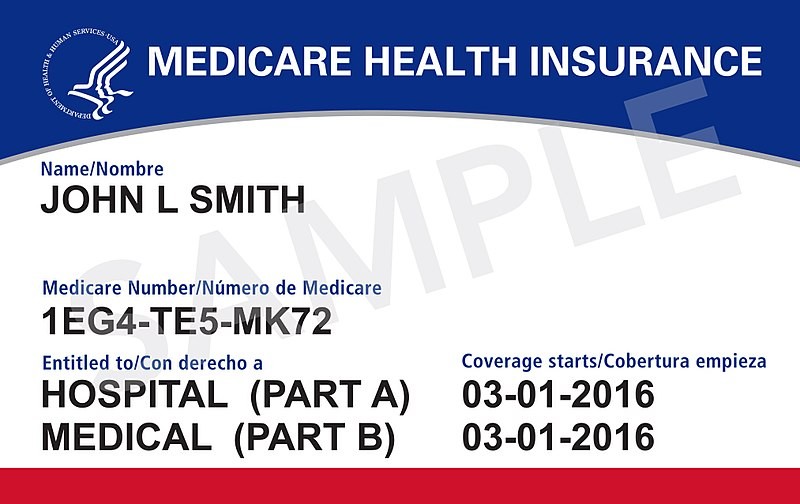The year of perfect vision, balance and, most importantly, the presidential elections is here: 2020. Every four years, American citizens must make an informed decision that will affect the next four, possibly eight, years of their lives.
This year, certain policies are bound to catch the eyes of certain people for a lot of different reasons. Medicare for All, for example, is a bill that has been brought up by different presidential candidates, including current senators Bernie Sanders and Elizabeth Warren. But what exactly is it and what does it entail?
Medicare for All is a very broad term that covers quite a few proposals for healthcare reforms. Since it is fairly new and there are multiple proposals, a lot of the details are a little hazy right now.
“The most common one that is talked about is the bill that was proposed by Bernie Sanders,” said Leila Barraza, J.D., an assistant professor at the Mel and Enid Zuckerman College of Public Health at the University of Arizona. “The context for it is a single-payer system that would replace private and public insurance for those in the U.S. … Instead of having public or private insurance, everyone would have a new public-insured program.”
Sanders has yet to release a detailed proposal for the bill. Warren, on the other hand, was criticized for her plan to fund the bill through increased taxes on the rich and large corporations.
A new study came out recently indicating that a single-payer system could save the United States $600 billion in administrative costs. Nearly half of all U.S. health spending is tied to administration management, according to a report from the Journal of American Medical Association in 2018.
The costs that private insurance companies have to deal with are then transferred to consumers in the U.S., which can make the skyrocketing prices unbearable for most. However, single-payer plans, including those proposed by Sanders, could potentially reduce health care costs by immense amounts.
“A single-payer system would be where the government is running your insurance,” said Erica White, a second-year law student at Arizona State University focusing on health law and policy. “Instead of calling places like Blue Cross Blue Shield or United Healthcare, it would be the federal government who is processing all of the claims … similar to Canada.”
Currently, Medicare covers Americans age 65 and older. With the proposed Medicare for All bill, every American would be covered. Medicaid, on the other hand, is a federal and state program that helps people with limited income and resources with medical costs. In the state of Arizona, Medicaid is called the Arizona Health Care Cost Containment System. The future of Medicaid is unclear if Medicare for All were to be put in place in the United States.
According to the Kaiser Family Foundation, multiple Medicare for All proposals have been introduced in Congress. The two main categories are “proposals that create a single-payer system and eliminate other forms of coverage” and “proposals that eliminate the Medicare and Medicaid programs but maintain a role for private insurance.”
“It’s something new, it’s different, it’s something we haven’t seen before,” Barraza said. “Private insurance companies would not want to see themselves go away. … It would be a totally different model and there are some issues that could come up.”
The majority of advocates for Medicare for All believe that the funding for the bill would come from increased taxes.
According to NPR, “Sen. Elizabeth Warren says paying for ‘Medicare for All’ would require $20.5 trillion in new federal spending over a decade. That spending includes higher taxes on the wealthy but no new taxes on the middle class.”
Critics of Warren argue that her plan would actually require almost double that, hovering around $34 trillion, according to CNN. In fact, her plan has been under a lot of scrutiny because most critics don’t believe she can get away with raising enough money without taxing the middle class anything.
Warren’s website includes a detailed plan of action to transition into having Medicare for All. She differs from Sanders in that her plan doesn’t eliminate the need for private insurance groups. According to The Washington Post, “she’s tacitly acknowledging Medicare-for-all’s political difficulty by proposing that people should be allowed — but not forced — to enroll in government health insurance as a first step toward universal health coverage.”
Oftentimes, critics of the bill bring up the fact that “fraud and abuse” would only be exacerbated if Medicare for All is put in place. Medicare “fraud” can consist of “knowingly submitting, or causing to be submitted, false claims or making misrepresentations of fact to obtain a Federal health care payment for which no entitlement would otherwise exist,” according to the Center for Medicare and Medicaid Services, among other reasons.
When given such an important privilege as to vote, it is crucial to know what is at stake when electing someone to office. Medicare for All is a bill that could potentially have both positive and negative side effects on the United States, and only time will tell what will happen.
Follow Amit Syal on Twitter








